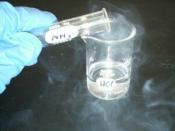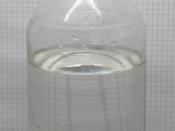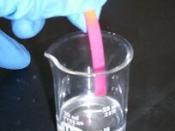Hypothesis
The rate of a reaction is the speed at which a reaction happens. If a reaction has a low rate, that means the molecules combine at a slower speed than a reaction with a high rate. Some reactions take hundreds, maybe even thousands of years while other can happen in less than one second. The rate of reaction depends on the type of molecules that are combining. There are two possible ways of measuring a rate:
measure how quickly one of the products are made,
measure how quickly one of the reactants disappear.
The theory that we use to explain how different variables change the rate of reaction is called the collision theory. For a reaction to take place, the particles of the substances that are reacting have to collide. Only a certain fraction of the total collisions cause chemical change; these are called "successful collisions". The successful collisions have sufficient energy (activation energy - Ea) at the moment of impact to break the existing bonds and form new bonds, resulting in the products of the reaction.
The variable heat for instance causes the particles to gain energy this causes higher chance for the particles to collide into each other.
There are four main variables that could change the rate of a reaction:
The concentration of the substance reacting - If there is more of a substance in a system, there is a greater chance that molecules will collide and speed up the rate of the reaction. If there is less of something, there will be fewer collisions and the reaction will probably happen at a slower speed.
The temperature - When you raise the temperature of a system, the molecules bounce around a lot more (because they have more energy). When they bounce around more, they are more...


